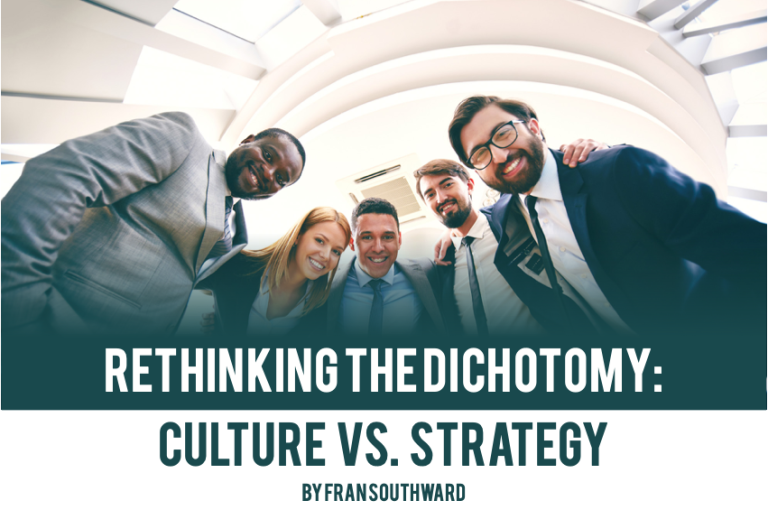In the business world, few axioms have enjoyed as much prominence as the assertion that “culture eats strategy for breakfast.” This adage suggests that an organisation’s culture, the shared beliefs, values, and behaviours of its people, exerts a more significant influence on its success than any carefully crafted strategic plan. While there’s undeniable truth in the power of culture, is it time to challenge this conventional wisdom and explore the complex interplay between culture and strategy in today’s dynamic business landscape.
The “culture vs. strategy” debate has long painted culture as the uncontested champion. The argument goes that even the most brilliant strategic plans can be derailed by a toxic or misaligned culture. If employees don’t share a collective sense of purpose, values, or a passion for what they do, the best-laid strategies can quickly unravel.
This perspective has led many leaders to prioritise culture over strategy, investing significant resources in fostering a positive workplace environment, promoting employee engagement, and emphasising core values. These efforts are undoubtedly crucial in shaping an organisation’s identity and employee morale.
However, the business landscape has evolved significantly in recent years. Rapid technological advancements, increased globalisation, a new operating model that includes a remote workforce for many, and the shifting expectations of a diverse and digitally connected workforce have introduced new complexities. In this environment, an organisation’s culture and strategy cannot be viewed as opposing forces but rather as interdependent elements that must work in harmony.
In the age of disruption, a rigid, unchanging culture can become a liability. While a strong culture provides stability and identity, it should not hinder an organisation’s ability to adapt to new challenges and seize emerging opportunities. Strategy plays a pivotal role in navigating change and fostering innovation. A well-crafted strategy provides a roadmap for addressing evolving market dynamics, customer preferences, and competitive landscapes.
Rather than pitting culture against strategy, forward-thinking leaders recognise the potential for synergy between the two. A thriving organisational culture can be a strategic advantage, fostering employee loyalty, attracting top talent, and enhancing customer relationships. Conversely, a well-defined strategy can guide and shape the desired culture, aligning it with the organisation’s goals and objectives.
A successful example of this synergy can be found in organisations that prioritise customer-centric cultures. By instilling a deep understanding of customer needs and a commitment to customer satisfaction as core cultural values, these organisations align their culture with a strategic focus on delivering exceptional customer experiences.
While culture undoubtedly plays a pivotal role in shaping an organization’s identity and fostering employee engagement, it cannot exist in isolation from strategy. The two are not adversaries but partners in achieving success.
In today’s fast-paced, ever-evolving business landscape, organisations must strike a delicate balance between nurturing a positive culture and crafting a strategic vision that guides them toward their goals. A healthy culture can fuel innovation, inspire employees, and differentiate an organisation in the marketplace. However, it is the strategic direction that ensures the culture remains aligned with the organisation’s mission and adaptable to the challenges and opportunities of the future.
The real magic happens when culture and strategy work hand in hand, supporting and reinforcing each other to drive sustainable success. In the end, it’s not a matter of culture eating strategy for breakfast or vice versa—it’s about recognising that both have their place at the table, each contributing to the growth and resilience of an organisation in its unique way. One without the other will never result in optimised organisational performance.










Comments are closed.